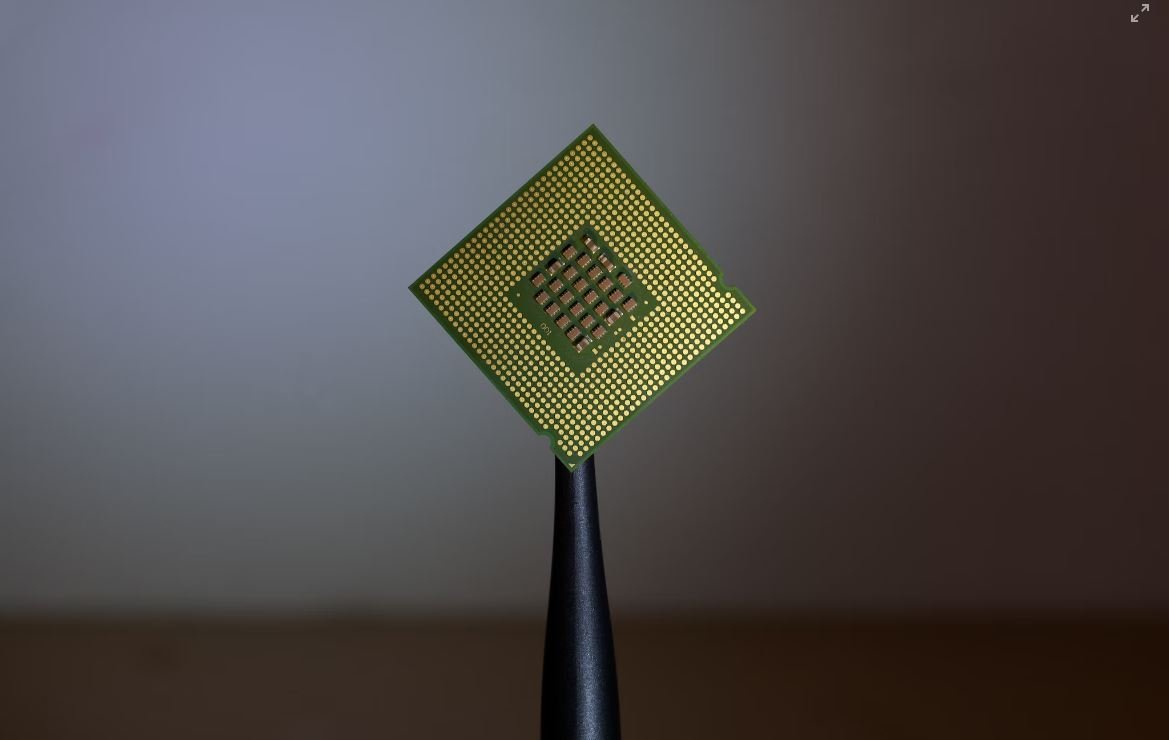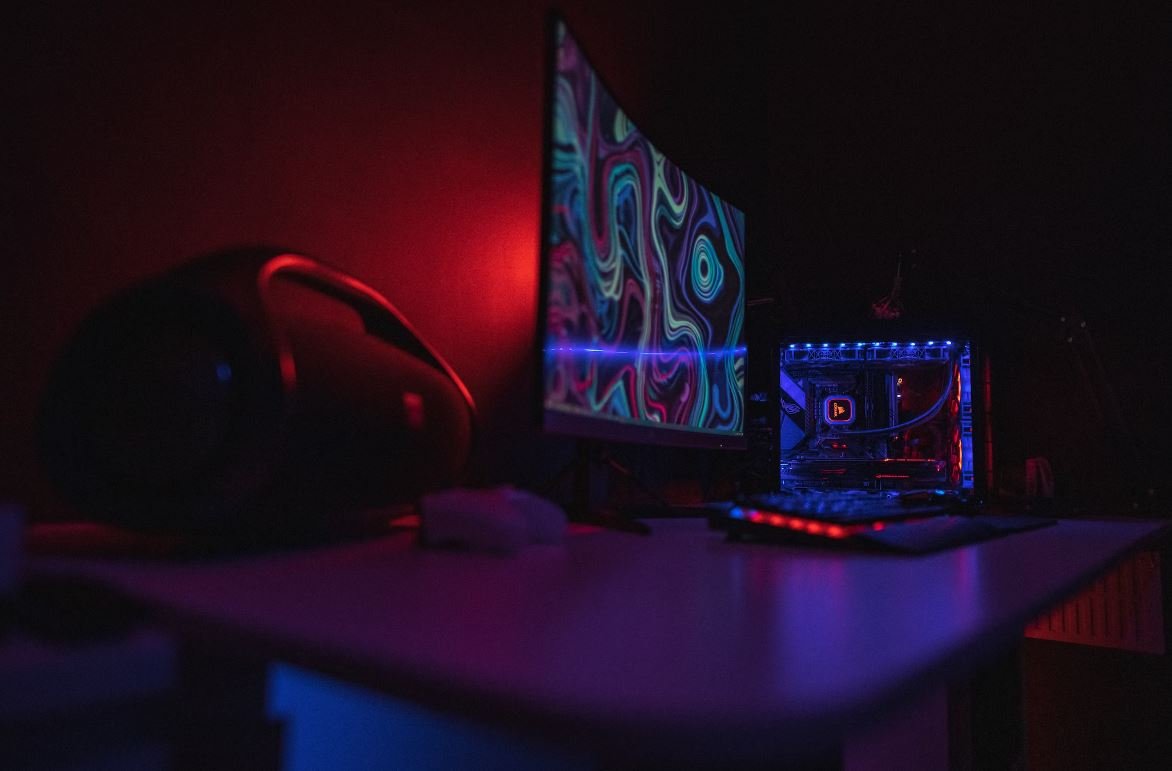Beats Maker – An Informative Guide
Beats makers are powerful tools that enable musicians, producers, and DJs to create unique beats for their music compositions. Whether you’re an amateur just starting out or a professional in the industry, having access to a beats maker can greatly enhance your creativity and productivity. In this article, we will explore the features, benefits, and various options available for beats makers, empowering you to make an informed choice for your music production needs.
Key Takeaways
- Beats makers help musicians, producers, and DJs create unique beats.
- They enhance creativity and productivity in music production.
Benefits of Using a Beats Maker
Using a **beats maker** offers numerous benefits for musicians and producers. First and foremost, it allows you to **create custom beats** that perfectly complement your musical style and genre. Additionally, it provides a **wide range of pre-set loops and samples**, saving you time and effort. With a beats maker, **endless possibilities of musical experimentation** are available at your fingertips. The convenience of **portability** makes beats makers a practical choice for those who like to compose music on the go.
*Using a beats maker opens up a world of endless musical possibilities.*
Types of Beats Makers
There are different types of beats makers available in the market today, each catering to specific needs and preferences. Let’s explore a few popular options:
- Software-based beats makers: These are **digital audio workstations (DAWs)** that offer a wide range of features and functionalities. They provide a **virtual environment** where you can create beats using various tools and instruments. Popular software-based beats makers include Ableton Live, FL Studio, and Logic Pro.
- Hardware-based beats makers: Also known as **drum machines**, these physical devices are dedicated to beat creation. They typically feature a **grid of pads** that allow you to trigger and program different sounds and rhythms. Examples of hardware-based beats makers include the iconic Roland TR-808 and Akai MPC series.
- Online beats makers: These web-based applications offer a convenient and accessible option for creating beats directly in your browser. They eliminate the need for software installation and are often accompanied by **ample sound libraries** to assist your creativity. Notable online beats makers include Soundtrap, Soundation, and Splice Beatmaker.
*Software-based beats makers like Ableton Live provide a versatile platform for beat creation and music production.*
Comparing Beats Makers
To help you understand the differences and make an informed choice, let’s compare three popular beats makers using a table.
| Beats Maker | Software-Based | Hardware-Based | Online Beats Maker |
|---|---|---|---|
| Availability | Requires installation on a computer | Requires purchase of physical device | Accessible through a web browser |
| Features | Extensive range of tools and plugins | Dedicated drum pads and controls | Pre-set loops and samples |
| Customization | Highly customizable with endless possibilities | Limited options but offers a unique sound | Limited customization compared to software-based |
*Hardware-based beats makers like the Roland TR-808 have a unique sound that many artists still find appealing.*
Conclusion
In conclusion, beats makers are essential tools for anyone involved in music production. They offer a range of benefits, including the ability to create custom beats, access a vast library of loops and samples, and enhance your overall creativity and productivity. The choice between software-based, hardware-based, or online beats makers depends on your specific preferences and requirements. So, explore the options available, compare features, and find the beats maker that best suits your needs. Get ready to unleash your musical potential and take your compositions to new heights.

Common Misconceptions
People believe that anyone can become a successful beats maker overnight
- It takes dedication and continuous practice to become skilled in beat making.
- A deep understanding of music theory and composition is necessary for creating high-quality beats.
- Success in beat making often requires building a strong network and connections in the music industry.
People think that beat making is only about pressing buttons on a software program
- While software programs are commonly used, manual music editing and sound design are equally important in creating unique beats.
- Beat makers need to have a good ear for selecting and tweaking sounds to produce desired results.
- Understanding the technical aspects of music production such as mixing and mastering is crucial in creating professional beats.
People assume that beat making only involves electronic music genres
- Beat making techniques can be applied to a wide range of music genres including hip-hop, R&B, pop, and even orchestral music.
- Beat makers often collaborate with different artists to produce beats tailored to their specific styles and preferences.
- Incorporating live instruments and organic sounds is common in beat making, adding depth and richness to the final production.
People overlook the importance of continuous learning and keeping up with industry trends
- The music industry is constantly evolving, and beat makers need to stay updated with new techniques, technologies, and trends.
- Engaging in online forums, attending workshops, and networking with other beat makers can provide valuable insights and learning opportunities.
- Stagnation in skills and using outdated approaches can hinder a beat maker’s chances of success in a competitive market.
People believe that beat making is a solitary endeavor
- Collaboration with other musicians, vocalists, and producers is often essential to create high-quality beats.
- Beat makers often collaborate with artists to bring their visions to life, involving feedback and working together to achieve desired results.
- Sharing ideas and techniques with other beat makers can foster creativity and open doors to new opportunities in the music industry.

Top 10 Beats Making Software in 2020
Choosing the right software is crucial for beat makers to create their unique sounds. Here are the top 10 beats making software in 2020, based on their features, user-friendliness, and sound quality.
| Software | Price | Key Features |
|---|---|---|
| 1. FL Studio | $199 | Extensive MIDI support, powerful mixer, lifetime free updates |
| 2. Ableton Live | $449 | Real-time audio stretching, versatile effects, user-friendly interface |
| 3. Logic Pro X | $199 | Professional sound library, Flex Time for precise editing, smart tempo detection |
| 4. Reason Studios | $399 | Virtual rack of instruments and effects, unlimited tracks and effects, intuitive sequencer |
| 5. Maschine | $599 | Built-in drum synthesis, comprehensive sound library, robust hardware integration |
| 6. Studio One | $399 | Single-window workflow, powerful drag and drop functionality, extensive virtual instruments |
| 7. Cubase | $579 | Advanced audio and MIDI editing, VST Connect for remote recording, smart compositional tools |
| 8. Pro Tools | $599 | Industry-standard audio production, powerful mixing and mastering tools, collaboration features |
| 9. Bitwig Studio | $399 | Modular sound design, excellent performance control, easy integration with external hardware |
| 10. Reaper | $60 | Lightweight and customizable, extensive routing options, affordable price |
Comparison of Beat Making Equipment Prices
When considering investing in beat making equipment, it’s crucial to know how different brands and models stack up against each other in terms of price. Here is a comparison of beat making equipment prices to help you make an informed decision.
| Equipment | Average Price |
|---|---|
| MIDI Keyboard | $100 |
| Drum Machine | $300 |
| Audio Interface | $200 |
| MIDI Controller | $150 |
| Studio Headphones | $150 |
| Digital Audio Workstation | $500 |
| Synthesizer | $600 |
| Sampler | $400 |
Most Popular Genres for Beat Making
Beat makers often specialize in various genres. Understanding the most popular genres in beat making can help producers target their audience and develop their skills accordingly. Here are the most popular genres for beat making.
| Genre | Description |
|---|---|
| Hip Hop | Characterized by strong beats, heavy basslines, and catchy melodies, Hip Hop is one of the most influential genres in beat making. |
| Trap | Originating from Southern hip hop, Trap features booming 808 drum sounds, rapid hi-hats, and dark atmospheric elements. |
| Electronic | Electronic music encompasses various sub-genres such as House, Techno, and Dubstep. It is known for its synthesized sounds and energetic beats. |
| R&B | Rooted in rhythm and blues, R&B beats often feature smooth melodies, soulful vocals, and intricate drum patterns. |
| Pop | Pop beats are characterized by catchy hooks, uplifting melodies, and a strong emphasis on vocal arrangements. |
Benefits of Using Pre-Made Beat Loops
Using pre-made beat loops can significantly speed up the beat-making process and offer several benefits to producers. Here are some of the advantages of utilizing pre-made beat loops.
| Advantage | Description |
|---|---|
| Time-saving | Pre-made beat loops allow producers to quickly construct beats without having to create each individual element from scratch, saving valuable time. |
| Inspiration | Having access to a wide variety of beat loops can serve as a source of inspiration, triggering new ideas and creative directions for beat makers. |
| Consistency | Using pre-made beat loops ensures a consistent quality in beats, as they are often created by professional producers or sound designers. |
| Versatility | Beat loops can be easily manipulated and modified to fit different genres or specific creative visions, offering a high degree of versatility. |
| Foundation | Pre-made beat loops provide a solid foundation for beat makers, allowing them to focus on adding unique elements and personal touches to their compositions. |
Income Distribution of Beat Makers
For aspiring beat makers, understanding the income distribution within the industry can help set realistic expectations and guide career decisions. Here is a breakdown of income distribution among beat makers.
| Income Level | Percentage of Beat Makers |
|---|---|
| Low Income | 60% |
| Middle Income | 35% |
| High Income | 5% |
Key Factors Influencing Beat Maker’s Success
Becoming a successful beat maker requires a combination of talent, hard work, and favorable circumstances. Here are some key factors that influence a beat maker’s success.
| Factor | Description |
|---|---|
| Technical Skills | A high level of technical proficiency in beat making software and equipment greatly enhances a beat maker’s ability to create quality music. |
| Creativity | Originality and creative innovation are essential traits for beat makers to stand out in a saturated market and attract a dedicated fan base. |
| Networking | Building connections and collaborating with other musicians, artists, and industry professionals opens doors for opportunities, exposure, and growth. |
| Motivation and Persistence | Success in beat making requires perseverance, as beat makers must constantly refine their skills, seek feedback, and adapt to market trends. |
| Marketing and Branding | Effectively promoting one’s brand and music through digital platforms, social media, and strategic marketing campaigns increases visibility and potential income. |
Beat Maker’s Equipment Preference
Beat makers have different preferences when it comes to the equipment they use. Understanding these preferences can provide insights into the specific tools and technologies favored by beat makers. Here are the preferred equipment types among beat makers.
| Equipment Type | Percentage of Beat Makers |
|---|---|
| Software-based | 70% |
| Hardware-based | 20% |
| Hybrid (Software and Hardware) | 10% |
Advantages of Mobile Beat Making Applications
Mobile beat making applications have revolutionized the industry, allowing musicians to create beats on the go. Here are some advantages of mobile beat making applications.
| Advantage | Description |
|---|---|
| Portability | Beat making apps offer the convenience of creating beats anytime, anywhere using smartphones or tablets, providing unmatched portability. |
| User-Friendly Interface | Most mobile beat making apps have intuitive interfaces tailored for touchscreens, making them accessible to beginners and experienced beat makers alike. |
| Integration with DAWs | Many mobile apps allow seamless integration with desktop digital audio workstations (DAWs), enabling beat makers to continue their projects across platforms. |
| Sampling Capabilities | Mobile apps often provide powerful sampling capabilities, allowing beat makers to record and manipulate samples directly using their device’s microphone. |
| Creative Inspiration on the Go | With mobile beat making apps, creative inspiration can strike at any moment, and beat makers can immediately capture their ideas, ensuring nothing gets lost. |
Conclusion
In the fast-paced world of beat making, choosing the right software, equipment, and genres play a vital role in a beat maker’s journey. By exploring the top software, understanding income distribution, recognizing key success factors, and considering equipment preferences, beat makers can navigate the industry more effectively. Additionally, leveraging the benefits of pre-made beat loops, exploring mobile beat making applications, and staying up-to-date with market trends enhance a beat maker’s creativity and productivity. Armed with this knowledge, aspiring beat makers can strive for success in this dynamic and ever-evolving field.
Frequently Asked Questions
What is a Beat Maker?
A Beat Maker is a software or hardware tool used by music producers to create and edit beats, rhythms, and musical loops.
What are the features of a good Beat Maker?
A good Beat Maker should provide a user-friendly interface, a wide range of sound samples and loops, customizable effects, automation capabilities, and the ability to export files in various formats.
Can I use a Beat Maker without any musical knowledge?
Yes, Beat Makers are designed to be accessible to both novice and experienced musicians. Many Beat Makers provide pre-made templates and easy-to-use tools that do not require extensive musical knowledge.
Can Beat Makers be used for live performances?
Yes, some Beat Makers offer performance-oriented features such as MIDI controller integration, real-time effects, and loop triggering, making them suitable for live performances and DJ sets.
Can I use my own samples and sounds in a Beat Maker?
Most Beat Makers allow users to import their own samples, sounds, and loops, giving artists the flexibility to create unique and original compositions.
What file formats are commonly supported by Beat Makers?
Commonly supported file formats in Beat Makers include WAV, MP3, AIFF, and MIDI. These formats ensure compatibility with various digital audio workstations (DAWs) and music players.
Are there any free Beat Makers available?
Yes, there are free Beat Makers available that offer basic features and functionalities. However, premium Beat Makers often provide more advanced tools and a wider range of sound samples.
Can I collaborate with other musicians using a Beat Maker?
Many Beat Makers support collaboration features, allowing musicians to work together on projects remotely. These features may include file sharing, version control, and real-time collaboration.
Can I sell the beats I create with a Beat Maker?
Yes, as long as you have the necessary rights to any third-party samples or loops used in your composition. Selling beats online has become a popular way for musicians to monetize their creations.
Can I use a Beat Maker on my mobile device?
Yes, there are Beat Maker apps available for both iOS and Android devices. These apps allow you to create beats on the go and sync them with your computer-based Beat Maker.




